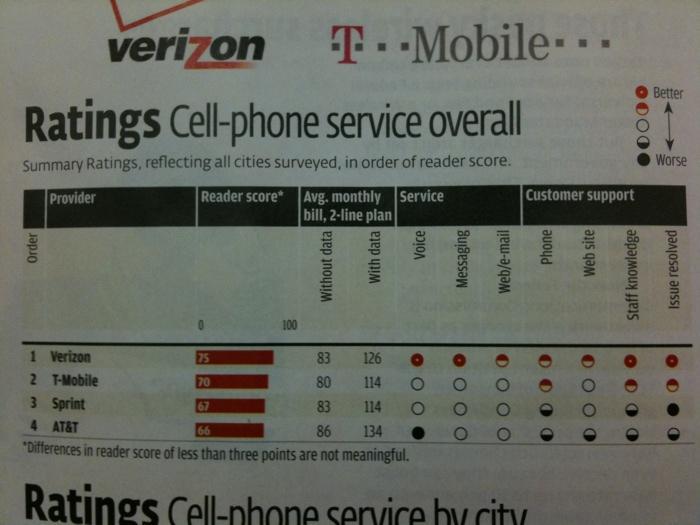Looks like AT&T smartphone customers may have to contend with a data price hike. The Wall Street Journal reports that Ralph de la Vega, AT&T’s CEO, is considering an á la carte data pricing scheme over currently offered unlimited plans.
Big Blue’s network has been taking some major hits, which the carrier blames on the heavy data demand coming from its smartphone users. A mere 3% of these subscribers are responsible for 40% of AT&T’s data traffic, so according to de La Vega, the company is trying to figure out how to “keep those subscribers from hampering the experience for everyone else.”
Many customers don’t know how much bandwidth they’re consuming, Mr. de la Vega added. When AT&T conducted a broadband test, customers often reduced their data use. Longer-term, he said, a pricing scheme based on usage is likely, though it will be determined by industry competition and regulatory guidelines. (WSJ)
One of the biggest offenders in this scenario is the iPhone contingency. No doubt, AT&T had no idea how big the data consumption would be for this device. And certainly, more than two years later, the demand hasn’t slowed, but actually surged, especially with sales of $99 iPhone 3G models. This, by the way, has been blamed for the terrible service reported in NYC and SF, which has gone on since the phone’s launch, but has only recently been acknowledged and focused on by AT&T.
Á LA CARTE FEES: GOOD OR BAD?
There are two ways to look at this: Thanks to a few data-hungry users, the experience is less than great for all of the carrier’s subscribers. So it’s fair that they should be discouraged from ruining the experience for everyone, and if they insist on high-data usage, then they should pay more.
But there’s another side to this: The whole idea of an unlimited data plan — which is a standard offering across all the providers — is to eliminate worry over being nickel-and-dimed. Now there may be more fees in the works? Why should any AT&T smartphone customers be penalized for a weak network infrastructure? Some are already paying a lot for the MicroCell femtocell solution. (And iPhone users already have one of the highest data costs in the country.)
Speaking of the iPhone, it’s easy to pin this on the Apple device, but consider this: AT&T is rumored to pick up a couple of Android handsets next year (and possibly even the Pixi). If any of this gossip pans out, then these multitasking handsets could bump the data traffic up even more. And yes, that would probably mean these customers would be slapped with the same tiered fees.
BLUE, WHAT ARE YA THINKIN'?
Carriers ought to be just as bound to contracts as their users are. If the provider changes the terms, then it should be well within their rights for customers to break the agreement without penalties. In Sprint's case, that looks to be true at least. If it works this way on AT&T, then I suspect an exodus might be coming. And if it doesn’t, then there are going to be a lot of angry customers demanding justice.
Honestly, I’m not sure what AT&T is thinking. As it is, the company has already come in dead last among Consumer Reports’ survey of the major U.S. carriers. It should have done everything possible to improve its image; not find yet another way to tick off its subscriber base.
It would’ve been smarter if Blue just worked on beefing up its data network and kept the spotlight there. Instead, no matter how this shakes out, the carrier’s looking at alienating a lot of key customers.

Consumer Reports puts AT&T dead last after assessing a variety of categories. For more on this, click here.